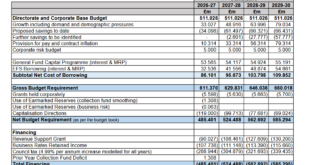There is little to dislike about a FTSE 100 stock that earns me a passive income. Of course there is a likelihood that some growth stocks might give me faster returns than income stocks. They undeniably have their merits. But I like predictable and relatively stable returns too.
With this in mind, I have invested in a number of FTSE 100 stocks that are likely to earn me a passive income, not just for now but also over longer periods of time. Of these, I would now like to invest £10,000 more across the following five stocks.
BP and Royal Dutch Shell offer promising passive income
Two stocks I quite like right now are the oil biggies BP (LSE: BP) and Shell (LSE: SHEL). They do not have the biggest dividend yields around, to be sure. BP is the slightly better of the two at 4.3%, and Shell’s yield at 3.4% is actually lower than the FTSE 100 average of 3.5%. So why do I like these stocks?
It has to do with both their past and their prospects. Both companies have been paid good dividends for a long time, so there is something to be said for dependability. Also, with crude oil trading at $100+ levels, I think we could reasonably expect more windfall profits for them. These are likely to be distributed in part as dividends and share buybacks, increasing my potential passive income in the near future. And they could be expected to continue paying dividends, albeit potentially smaller ones, in the future.
However, this is only possible as long as the economic situation does not deteriorate. Inflation is rising fast and so are interest rates, which might just quickly turn into an economic slump if not handled correctly. The world economy has already been through an unexpected setback in the last couple of years, which has impacted all stocks, including BP and Shell. Another slump will affect their demand as well.
Moreover, over the long term there is no way of knowing if they will be able to pull off a transition to clean energy provision. And that could put a question mark on my ability to earn passive income from them in, say, the next 10 years.
Persimmon has a double-digit dividend yield
To balance the two challenges with the oil stocks (that is, moderate dividend yields and their uncertain long-term futures), one FTSE 100 stock I have bought is Persimmon (LSE: PSN). The housebuilder has a huge dividend yield of 10.4% right now. Its share price has been sluggish since the government started rolling back its fiscal stimulus that supported the sector during the pandemic.
But I am still quite optimistic about the stock. Its own projections are pretty buoyant. And going by the fact that house prices have been quite resilient recently, its prospects only look better. Moreover, the fact that the UK is expected to be a growing economy over time, it should continue to do well even if there are short-term challenges.
This is not to minimise the potential effect of those short-term challenges though. Rising interest rates, in particular, could impact the real estate market negatively. A substantial proportion of houses are bought on mortgage, and as rates rise to combat inflation, potential buyers might decide to postpone their purchases. This in turn could impact Persimmon’s performance.
Royal Mail has good long-term prospects
No company is spared from the challenges of high inflation, of course. Consider the case of Royal Mail (LSE: RMG), which is the next stock I want to talk about. At present, the FTSE 100 letters and parcel delivery specialist has a pretty decent dividend yield of 4.5%. But its earnings could decline if its costs, in particular its labour costs, rise. And they may well increase.
The company’s strong trade union has asked for inflation-linked pay rises. As in the past, I am sure the company’s management will negotiate a compromise. But it would not be far-fetched to pencil in at least some increase in costs coming from this. The alternative outcome is not good for the stock either. A stalemate between the union and management proved to be really bad for the stock in the recent past. And I am not sure if it is to either party’s benefit if it happens again.
However, as happened earlier, I expect the situation to be resolved, making Royal Mail a stock to buy and hold for me. I particularly like its long-term prospects as a believer in the growing e-commerce market. The company has been long established in the UK and is in a strong position to fulfil growing demand from online purchases. I expect it to continue to earn me a passive income for a long time.
SSE’s a FTSE 100 stock with a great future
Another FTSE 100 stock with good long-term prospects is SSE (LSE: SSE). Clean energy is the way forward. And I think that few would disagree that companies producing it should do quite well in the future. SSE is at the forefront of this trend as the biggest producer of renewable energy in the UK. And it has a 4.9% dividend yield. Moreover, it is an incredibly cheap stock right now, in my view, with a price-to-earnings (P/E) ratio of 6.6 times. This compares to the FTSE 100 P/E of 15 times.
It is not without its challenges though. Its share price movements in particular have underwhelmed in the past few months since I have held the stock. I expect this to change, going by its financials and its prospects. But I am still waiting for that to happen. Even if its share price stays flat in the short-to-medium-term though, I am happy to be invested in the stock for now. It does earn me a passive income. And there is a strong chance that over the long term it will show capital appreciation too.
Inflation Is Coming: 3 Shares To Try And Hedge Against Rising Prices
Make no mistake… inflation is coming.
Some people are running scared, but there’s one thing we believe we should avoid doing at all costs when inflation hits… and that’s doing nothing.
Money that just sits in the bank can often lose value each and every year. But to savvy savers and investors, where to consider putting their money is the million-dollar question.
That’s why we’ve put together a brand-new special report that uncovers 3 of our top UK and US share ideas to try and best hedge against inflation…
…because no matter what the economy is doing, a savvy investor will want their money working for them, inflation or not!
Best of all, we’re giving this report away completely FREE today!
Simply click here, enter your email address, and we’ll send it to you right away.
Manika Premsingh owns BP, Persimmon, Royal Dutch Shell, Royal Mail, and SSE. The Motley Fool UK has no position in any of the shares mentioned. Views expressed on the companies mentioned in this article are those of the writer and therefore may differ from the official recommendations we make in our subscription services such as Share Advisor, Hidden Winners and Pro. Here at The Motley Fool we believe that considering a diverse range of insights makes us better investors.


